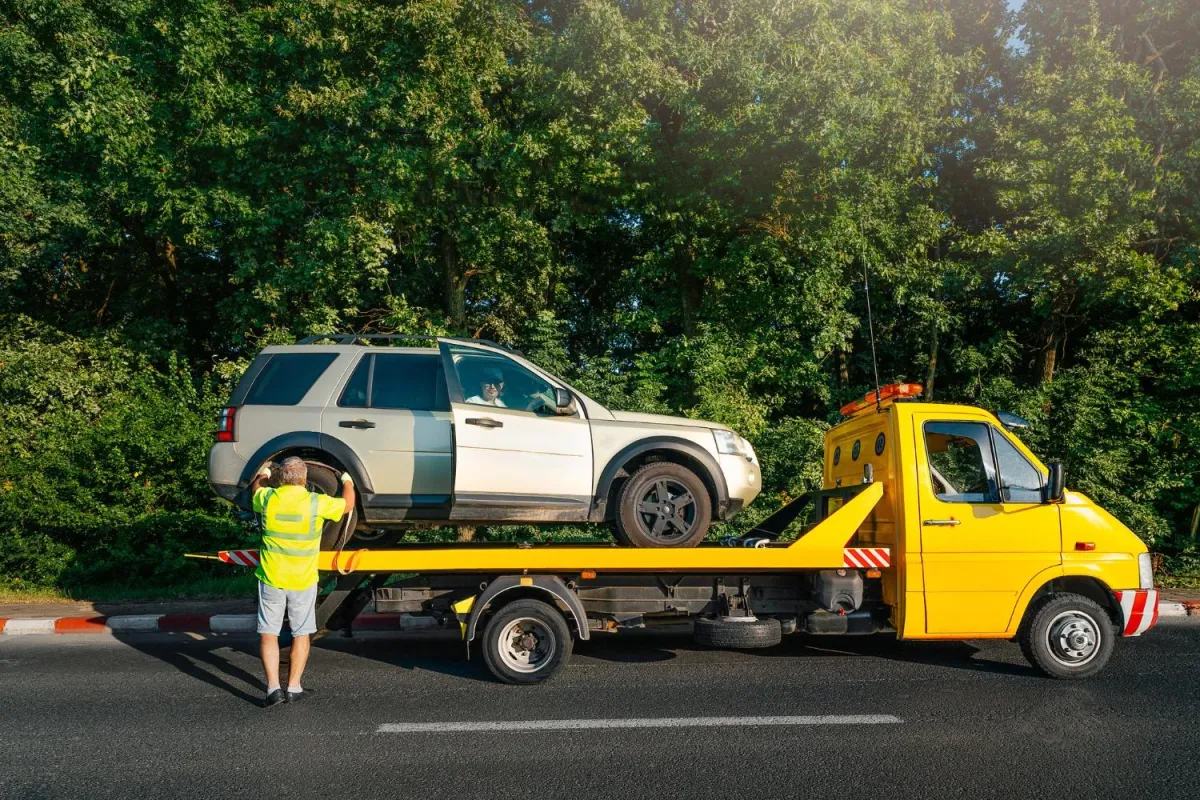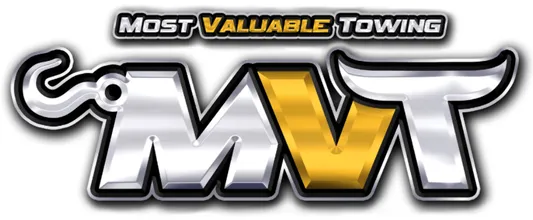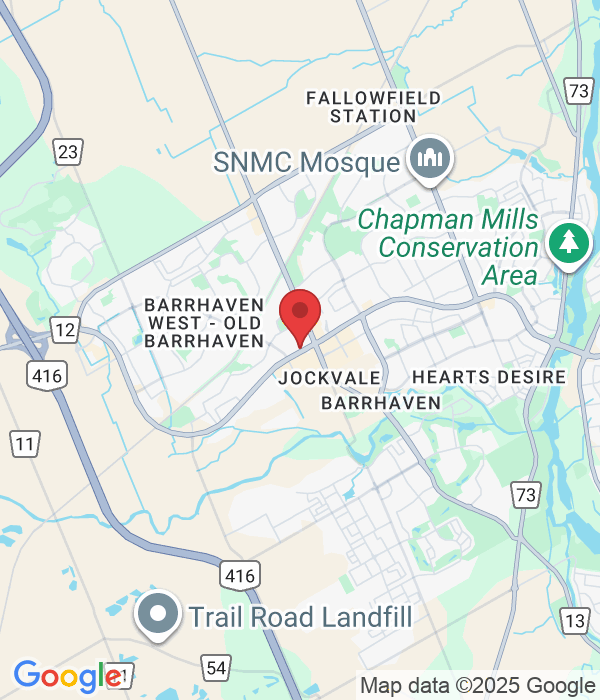Blog

Inside Ottawa’s Professional Towing: Skill, Safety & Service
When people pass a tow truck on the side of the road, most don’t think twice about what the driver had to do to get there, or what’s happening behind the scenes. But the reality is, there’s a lot more going on than just hooking up a car and driving off. Every tow is different and it takes sharp thinking, solid training, and the right tools to do the job properly. Whether it's helping clean up after a fender bender on Bank Street or pulling a stalled van off the Queensway, towing plays a key role in keeping Ottawa’s roads moving safely.
As we head into October and the darker, colder months, calls to towing companies around Ottawa start to increase. Drivers face more vehicle trouble, more accidents, and more unexpected stops. But how does all this get handled behind the scenes? What kind of work goes into each call? To answer those questions, let’s take a closer look at what professional towing really looks like, starting with the people behind the wheel.
The Role of a Professional Towing Operator
Towing isn’t something just anyone can jump into. It takes a lot more than just driving a big truck. Most tow truck operators are trained in both driving and recovery techniques, with a strong focus on understanding how different vehicles behave in various conditions. In Ottawa, where icy weather, narrow downtown roads, and rural gravel lanes can all happen in a single day, that experience makes a big difference.
Operators begin with licensing and safety certifications. Many also complete training in loading vehicles without causing damage, managing accident scenes safely, and using specialized tools like winches and straps. Some jobs call for directing traffic calmly, while others involve working alongside police or paramedics. Being steady under pressure is part of the role.
Here’s what a typical day might include:
- Picking up a stranded car on Highway 417 during rush hour
- Assisting with accident recovery just north of Hunt Club Road
- Transporting a sedan with a dead battery to a local garage
- Pulling a stuck van out of a muddy parking lot after heavy rain
Towing operators also need to know Ottawa well. That includes having a good grasp of traffic patterns on major routes like Rideau Street and knowing which backroads are best avoided when hauling a load. Conditions can shift fast in the fall, with fading daylight and slippery leaves covering the pavement. In a city where you can move from dense residential blocks to quiet wooded roads in minutes, strong local insight helps complete the job safely and quickly.
So, when someone calls a towing company in Ottawa, they’re not just getting a truck. They’re getting a trained professional who knows how to manage stress, solve problems on the fly, and guide vehicles through tricky situations. That’s what sets the pros apart.
The Equipment Used in Professional Towing
Tow trucks come in different types, and the tools they carry vary depending on the job. Matching the right truck and gear to the situation makes a big impact on how smooth and safe the process is.
Here are some commonly used towing trucks:
1. Flatbeds – These trucks carry the entire vehicle off the ground, providing a stable option for long distances or severely damaged cars.
2. Hook and chain – Less common today for standard vehicles due to the risk of damage, but they’re still occasionally used for heavy-duty towing.
3. Wheel-lifts – These lift the front or rear wheels of a vehicle off the ground, offering a quicker option when space is limited.
In addition to the trucks, operators use several tools to get the job done:
- Winches for recovering vehicles from snowbanks or ditches
- Wheel straps and safety chains to secure cars during transport
- Skates to move non-rolling vehicles
Equipment must be inspected before every job. Straps are checked for cuts, winches for proper tension and responsiveness, and tools are cleaned and ready for use. Given Ottawa’s shift in weather conditions throughout the day—from icy mornings to rainy afternoons—maintained gear can make the difference between a safe tow and a risky one.
Preparedness also means working faster and safer. For example, if a car stalls near Carling Avenue during peak hours, being able to act efficiently without fumbling for the right strap or hook helps avoid delays and keeps everyone safer. Professional towing is as much about preparation as it is about performance.
Safety Protocols and Measures
Safety leads every decision in professional towing. No two calls are the same, and every tow—from stuck cars in busy downtown intersections to rollovers on country roads—has its own concerns.
Before the hook is even attached, operators assess the scene. Are there fast-moving cars nearby? Any visible hazards like broken glass, fuel leaks, or downed wires? Cones or flares are set out as needed, and high-visibility gear is worn, especially when weather or lighting makes drivers harder to see.
Different situations call for different safety measures:
- Accidents – These often involve first responders. Once police or paramedics give the go-ahead, towing crews work quickly to remove damaged vehicles and clear the road.
- Breakdowns – These take patience and focus. Navigating tight laneways or busy parking lots still requires safety checks and clear communication, even if things look calm.
- Bad weather – Ottawa sees it all in the fall and winter. Tow operators brace for ice, freezing rain, and blowing snow, sometimes adding extra tie-downs or taking adjusted routes for safer travel.
Insurance also plays a role in staying safe on the job. Towing companies must ensure their employees, trucks, and even the towed vehicle are properly covered. Trucks are kept in good working order. Equipment is logged, inspected, and replaced when needed. These behind-the-scenes steps are what allow crews to move confidently and protect everyone involved.
Safety is more than a checklist. It’s about respecting the scene, protecting vehicles, and making sure everyone gets home at the end of the day.
A Day in the Life of a Towing Service Professional
No two days are the same in towing, and the work can shift from routine to urgent in the blink of an eye. Some mornings start with simple pick-ups, while others launch into emergency response. It all depends on the road.
A morning might begin like this:
- Inspect the tow truck’s brakes, fluids, and lift systems
- Go over the job list for upcoming service calls
- Load extra chains or tools, especially if icy weather or roadside recovery is expected
By lunchtime, things can get busy. Between school zones and afternoon errands, traffic spikes around key areas like Riverside Drive, Baseline, or downtown. Operators may bounce from a battery boost in Westboro to helping clear a multi-vehicle collision out in Kanata.
One job that stood out involved a driver who ran into black ice just before entering a cramped underground garage. The operator had to carefully maneuver a low-clearance truck up a ramp, safely hook the car with limited space to move, and guide it back down without causing any damage. It took focus, calm nerves, and accurate handling—but the job got done with zero stress added to the shaken driver.
Late afternoon brings a final push. More calls come in, with people leaving work or school realizing their vehicle won’t start or they've discovered a flat. Some operators hand off jobs to overnight teams, while others stay out longer to finish what’s been booked. There’s a lot of unseen effort and stamina in this line of work.
Tow operators often work under pressure and in unpredictable conditions. But it’s part of what makes the job meaningful. Helping someone go from stranded and frustrated to grateful and back on the road is what many operators take pride in.
Bringing You Peace of Mind
Next time you see a tow truck working on the side of an Ottawa street, remember there’s more going on than a simple vehicle pick-up. Behind each job is a trained expert juggling timing, tools, safety, and customer reassurance. From messed-up traffic on the Queensway to hidden hazards on a snowy suburban road, professional towing calls for clear thinking and real experience.
Towing companies in Ottawa are built on people ready to act under pressure, keep others safe, and treat every vehicle with care. When someone needs help fast, it’s these teams that show up with a plan and the know-how to make things right.
Whether it’s a stalled car, a crash, or a tricky recovery, what matters most is feeling like someone capable has your back. That’s the peace of mind professional towing aims to provide—day or night, rain or shine.
As roads in Ottawa get busier and weather conditions become more unpredictable, having a reliable service can make all the difference. When you're in a bind, it's comforting to know there's a dedicated professional ready to help. For trusted support, consider our team at Most Valuable Towing. Learn more about how our team can support you by checking out our towing company in Ottawa today.

24 Hours – 7 Days a week
Service Areas In Ottawa, Ontario
Kars
Kenmore
Limoges
Manotick
Metcalfe
Kenmore
Munster
Navan
Nepean
North Gower
Orleans
Osgoode
Ramsayville
Richmond
Rockcliffe
Russell
Rockland
Saint-pascal-baylon
Sarsfield
Stittsville
Vanier
Vars
Westwood
Woodlawn
If you’re ready to be towed currently, please call us directly on 343-503-0866 /
info@ottawatowtruckservice.com
For Bookings and Accounts, please call
Copyright © 2024 Ottawa Tow Truck Service. All Rights Reserved.
